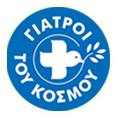For the first time ever in its history, the United Nations General Assembly is organising a high-level meeting on 19 September to propose a concerted approach to managing the massive displacements of refugees and migrants. Doctors of the World – Médecins du Monde (MdM) welcomes this initiative and is calling for a global, coordinated response to be put in place, particularly for women and children.
The MdM International Network is working at every stage of the migration route on different continents, from country of origin to host country. In Europe, our teams and partners in the field have observed how extremely precarious the lives of migrants and refugees are at every point along that route. As some of our figures[1] show, the health situation raises concerns:
- Almost three-quarters of pregnant women received have no medical cover and almost 40% have not had access to antenatal care;
- Among those people who raise the subject, more than a quarter declare that they have suffered a form of psychological violence and almost 15% have suffered sexual violence. These dramatic experiences add to the ordeal imposed by migration. As health professionals, we are concerned with the psychological problems of migrants/refugees. The complexity of the response to this issue requires deployment of additional resources.
States must seize the opportunity afforded by the UN General Assembly meeting to guarantee the protection and security of migrants/refugees. MdM is asking for:
- Access to national health systems based on solidarity, equality and equity:
- Women must have access to prenatal and postnatal care, safe childbirth and family planning services;
- Children must have access to national vaccination programmes and paediatric care;
- The setting up of legal and safe routes of access, with the possibility of requesting the right to asylum in the migrants’/refugees’ country of choice;
- Satisfactory conditions for reception and legal protection, specifically for women and children who now represent the majority of migrants/refugees:
- Unaccompanied minors in particular must be able to access care and legal protection in line with the international Convention on the Rights of the Child. They must be supported in appropriate structures;
- Medical examinations carried out as a means to control immigration must be discontinued, particularly those linked to establishing minority (bone test).
“States must reach an ambitious political agreement. They can no longer consider refugees and migrants as ‘displaced masses’ but as individuals entitled to rights. We will be watching closely for concrete results from the commitments made by the international community following the UN General Assembly meeting. The humanitarian emergency continues to worsen from day to day. Implementing a solidarity response is a matter of survival for these migrants; for decision-makers it is a question of courage and political will,” states Doctor Françoise Sivignon, President of MdM.
MdM will be represented at the meeting of the United Nations General Assembly by its President, Dr Françoise Sivignon, and by Mr Jean Saslawsky, Secretary General of MdM International Network.
Press contact:
Aurélie Defretin
01 44 92 13 81 / 06 68 69 92 51
[1] These figures were collected over the previous year in 13 countries (Belgium, Canada, France, Germany, Greece, Luxemburg, Netherlands, Norway, Spain, Sweden, Switzerland, Turkey and United Kingdom) during almost 90,000 consultations.
